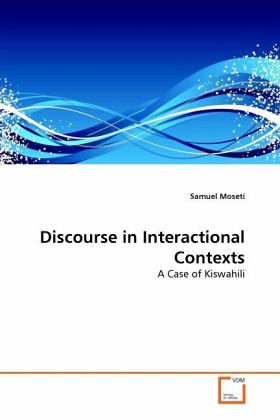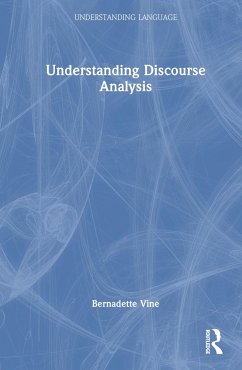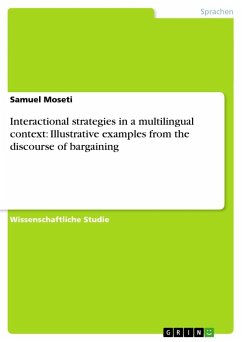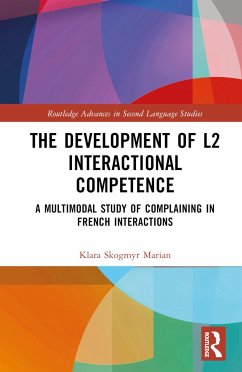
Discourse in Interactional Contexts
A Case of Kiswahili
Versandkostenfrei!
Versandfertig in 6-10 Tagen
52,99 €
inkl. MwSt.

PAYBACK Punkte
26 °P sammeln!
In Eastern Africa, socio-economic and political activities are largely carried out in Kiswahili, a Lingua Franca that is used in daily interactive activities including buying and selling. In this region, people of different socio-economic status use Kiswahili as a medium of interaction. As such, Kiswahili plays a pivotal role in communication and trade. Kiswahili is a common medium of communication and an alternative to the use of foreign and vernacular tongues which are not widespread. This book explicates the forms, structures and mechanics of human communication through verbal interaction a...
In Eastern Africa, socio-economic and political activities are largely carried out in Kiswahili, a Lingua Franca that is used in daily interactive activities including buying and selling. In this region, people of different socio-economic status use Kiswahili as a medium of interaction. As such, Kiswahili plays a pivotal role in communication and trade. Kiswahili is a common medium of communication and an alternative to the use of foreign and vernacular tongues which are not widespread. This book explicates the forms, structures and mechanics of human communication through verbal interaction and examines such issues as turn-taking, opening and closing interactional encounters and transactional strategies, relative to Kiswahili transactional discourse. Earlier studies did not pay much attention to contextualized discourses. This is an apparent gap that this book fills, besides contributing to the body of knowledge in discourse studies. This book responds to some pertinent questions on the relationship between language use and co-existence in situated social interactions. This book will be useful to under-graduate and post-graduate students of Pragmatics and Discourse Analysis.












